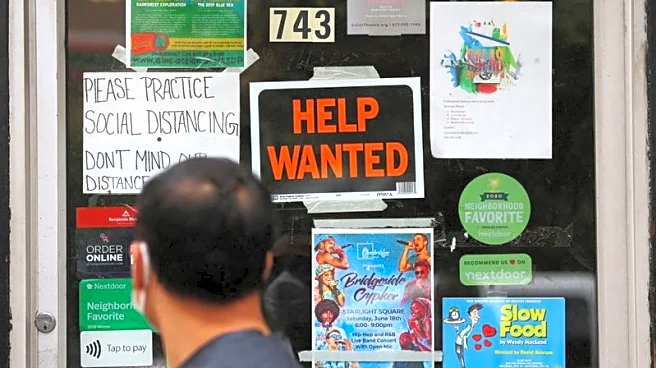What's Happening?
The Supreme Court is preparing to hear a significant case concerning the U.S. policy of stopping migrants in Mexico. This case will address whether the U.S. government can legally prevent migrants from
entering the country and deny them the right to seek asylum. The policy has been a contentious issue, with implications for immigration law and the rights of asylum seekers. The case will be closely watched as it could set a precedent for how the U.S. handles asylum claims and border control measures.
Why It's Important?
The outcome of this Supreme Court case could have far-reaching implications for U.S. immigration policy and the rights of asylum seekers. If the court upholds the policy, it may lead to stricter border control measures and impact the lives of thousands of migrants seeking refuge in the U.S. Conversely, a ruling against the policy could reinforce the rights of asylum seekers and potentially alter the current approach to immigration enforcement. This case is pivotal in shaping the future of U.S. immigration law and policy.
What's Next?
As the Supreme Court prepares to hear arguments, stakeholders including immigration advocates, policymakers, and civil rights groups are likely to weigh in on the potential consequences of the ruling. Depending on the decision, there may be legislative or executive actions to address the court's findings. The case could also influence public opinion and political discourse surrounding immigration and asylum policies in the U.S.
Beyond the Headlines
The case raises ethical and legal questions about the balance between national security and human rights. It also highlights the challenges faced by migrants and the complexities of international law regarding asylum. The decision could prompt discussions on the humanitarian aspects of immigration policy and the U.S.'s role in global migration issues.












